The Best Companion Plants For Blueberries
Title: The Best Companion Plants for Blueberries
Introduction:
Blueberries are a delicious and nutritious fruit that is easy to grow in most climates. However, in order to get the best possible harvest, it is important to plant blueberries with the right companion plants. Companion planting is the practice of planting different types of plants together in order to benefit each other. When done correctly, companion planting can help to improve the health, productivity, and pest resistance of your plants.
In this blog post, we will discuss the best companion plants for blueberries. We will also provide some tips on how to plant and care for these plants together.
Main Content:
There are many different plants that can be beneficial companions for blueberries. Some of the best include:
- Strawberries: Strawberries and blueberries have similar growing requirements, and they can help to improve each other's yields. Strawberries help to suppress weeds and attract pollinators, while blueberries provide shade for strawberries during the hot summer months.

- Rhododendrons and azaleas: These plants are members of the same family as blueberries, and they share similar soil and moisture requirements. Rhododendrons and azaleas can also help to attract pollinators to your blueberry patch.
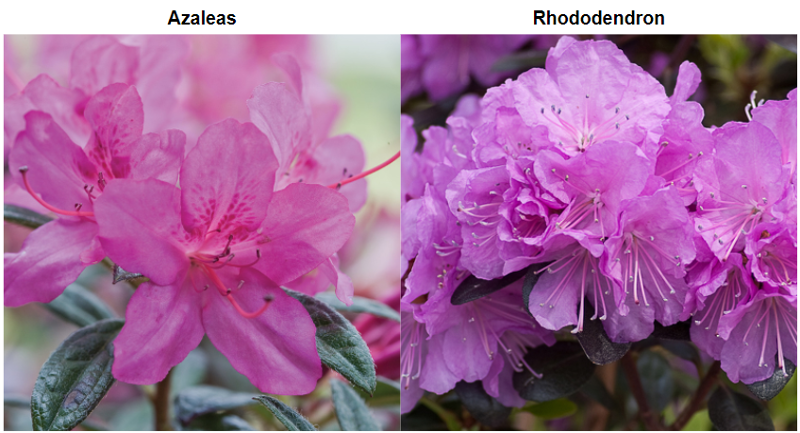
- Heather: Heather is another acid-loving plant that can be a good companion for blueberries. Heather helps to improve the drainage of the soil around blueberries, and it can also help to attract beneficial insects.

- Thyme: Thyme is a low-growing herb that can be planted around blueberries to help suppress weeds. Thyme also helps to improve the flavor of blueberries.

- Clover: Clover is a nitrogen-fixing plant that can help to improve the soil quality around blueberries. Clover also helps to suppress weeds and attract pollinators.
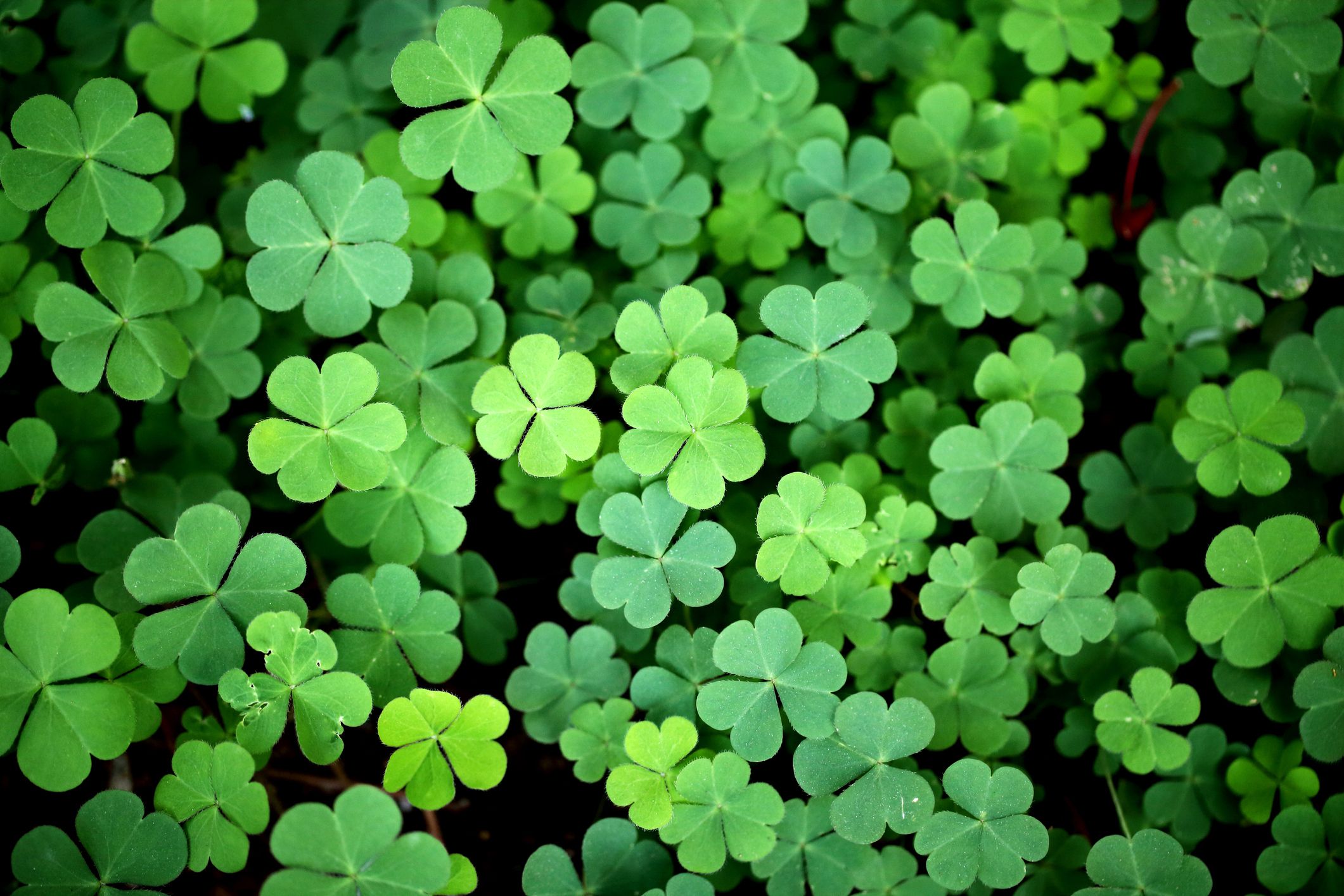
In addition to these plants, there are many other that can be beneficial companions for blueberries. Some other good options include:
- Daisies: Daisies help to attract pollinators and improve the drainage of the soil around blueberries.
- Lilacs: Lilacs can help to attract pollinators and provide shade for blueberries during the hot summer months.
- Ferns: Ferns help to improve the moisture levels around blueberries and suppress weeds.

- Holly: Holly can help to attract beneficial insects and deter pests from blueberries.
Conclusion:
By planting blueberries with the right companion plants, you can improve the health, productivity, and pest resistance of your plants. The plants listed above are just a few of the many that can be beneficial companions for blueberries. When choosing companion plants, it is important to consider the specific needs of your blueberries and the climate in your area.
Are you growing blueberries in your garden? If so, you're in luck! There are a number of companion plants that can help your blueberries thrive. These plants can help to improve the soil quality, attract pollinators, and deter pests.
Some of the best companion plants for blueberries include:
- Strawberries
- Clover
- Legumes
- Oak
- Pine
- Wildflowers
These plants all have similar soil requirements to blueberries, so they won't compete for nutrients. They also help to improve the drainage and aeration of the soil, which is important for blueberries.
In addition, these plants attract pollinators, which are essential for blueberry pollination. They also help to deter pests, such as deer and rabbits.
If you're looking to improve the health and productivity of your blueberry plants, consider planting some of these companion plants. You can find more information about the best companion plants for blueberries at Home Gardening.
FAQ of best companion plants for blueberries
- What are the best companion plants for blueberries?
Some of the best companion plants for blueberries include:
Strawberries: Strawberries and blueberries both prefer acidic soil, so they make good companion plants. They also have different flowering times, so they can help to extend the bloom season in your garden.
Evergreens: Evergreens can provide shade for blueberries, which can help to prevent them from getting sunburned in hot weather. They can also help to retain moisture in the soil.
Herbs: Herbs like thyme, basil, and mint can help to attract pollinators to your blueberry plants. They can also help to deter pests.
Flowers: Flowers like daisies, columbine, and mountain laurel can add beauty to your blueberry garden. They can also help to attract pollinators.
What should I avoid planting near blueberries?
Some plants that you should avoid planting near blueberries include:
Acid-sensitive plants: Some plants, such as tomatoes and eggplants, are sensitive to acidic soil. Planting them near blueberries can stress the blueberry plants.
Nitrogen-fixing plants: Nitrogen-fixing plants, such as beans and peas, can compete with blueberries for nitrogen. Planting them near blueberries can reduce the amount of nitrogen available to the blueberry plants.
Pest-attracting plants: Some plants, such as cabbage and beets, attract pests that can also damage blueberries. Planting them near blueberries can increase the risk of pest infestation.
How far apart should I plant blueberries and their companion plants?
The spacing requirements for blueberries and their companion plants will vary depending on the specific plants involved. However, as a general rule of thumb, you should plant blueberries at least 3 feet apart. Companion plants can be planted closer together, but you should still allow enough space for them to grow.
- What is the best fertilizer for blueberries?
A good fertilizer for blueberries will be high in nitrogen and low in phosphorus. You can use a commercial fertilizer specifically formulated for blueberries, or you can make your own fertilizer by mixing equal parts ammonium sulfate, superphosphate, and potassium sulfate.
- How do I care for companion plants for blueberries?
The care requirements for companion plants for blueberries will vary depending on the specific plants involved. However, as a general rule of thumb, you should water companion plants regularly, especially during hot weather. You should also fertilize companion plants once or twice a year, in the spring and fall.
Image of best companion plants for blueberries
10 different images of best companion plants for blueberries that are free to use:
- Strawberry
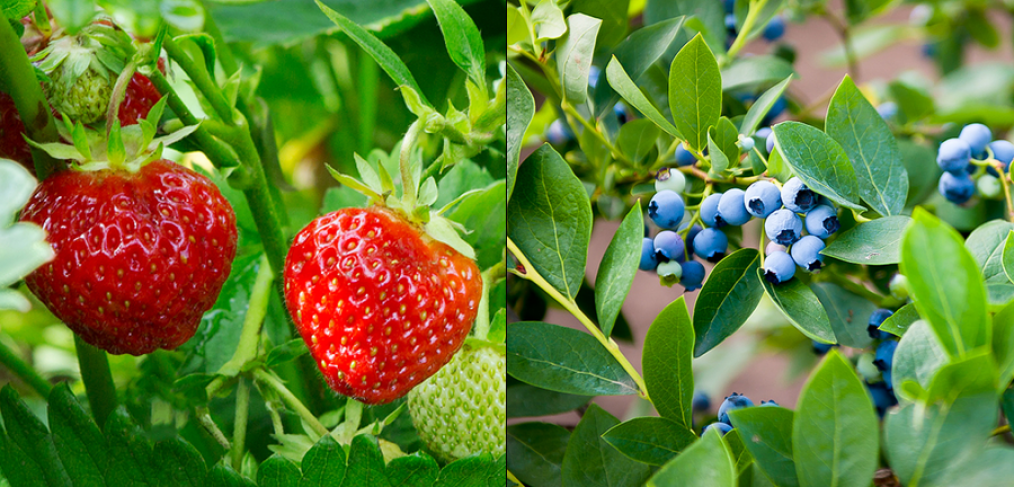 Strawberries and blueberries are both acid-loving plants, so they make good companions. They also have different bloom times, so they can help each other attract pollinators.
Strawberries and blueberries are both acid-loving plants, so they make good companions. They also have different bloom times, so they can help each other attract pollinators. - Rhododendron
Rhododendrons are another acid-loving plant that can be a good companion for blueberries. They also add beauty to the garden with their colorful flowers.
- Azaleas
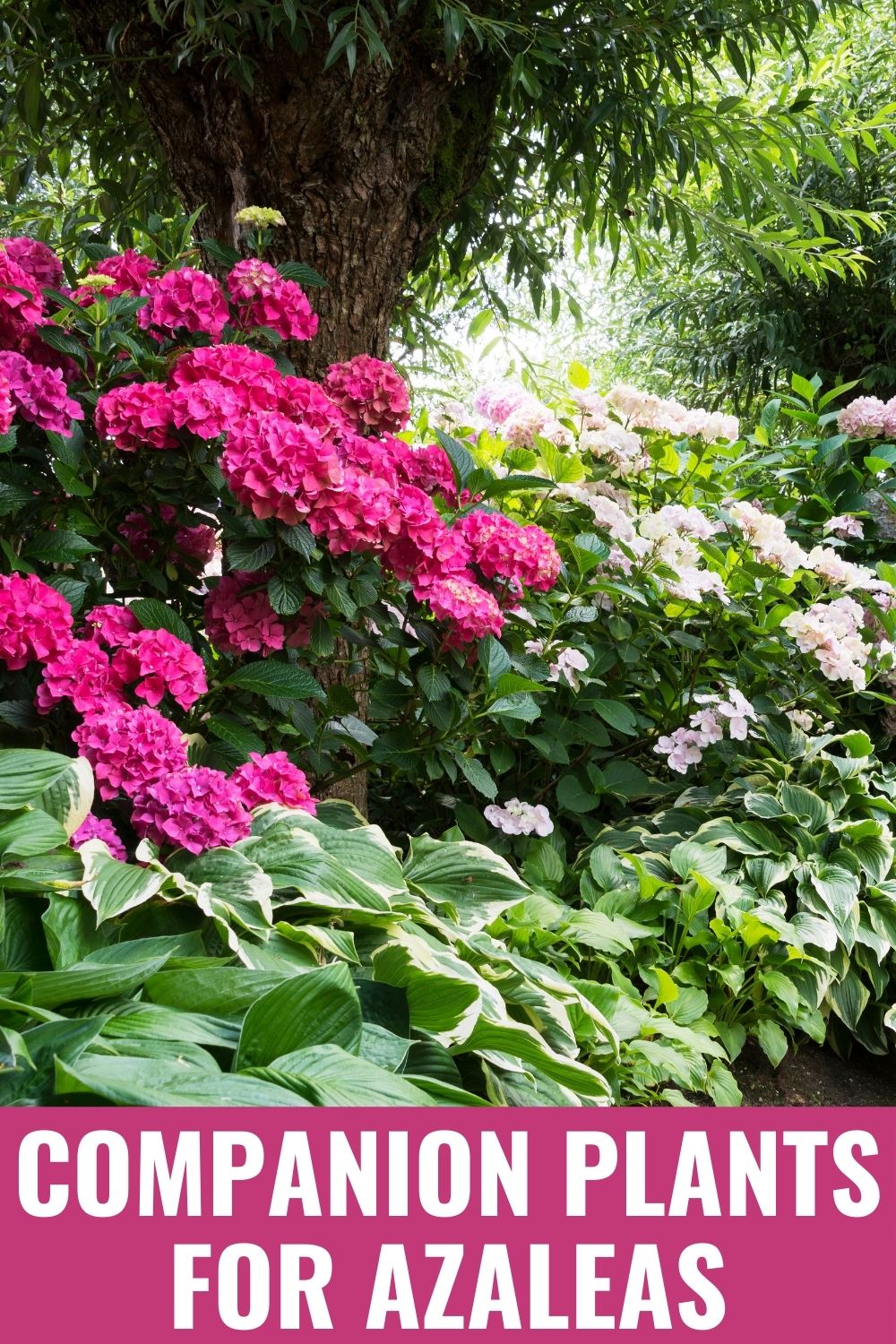 Azaleas are similar to rhododendrons, and they make good companions for blueberries for the same reasons.
Azaleas are similar to rhododendrons, and they make good companions for blueberries for the same reasons. - Evergreens
Evergreens, such as pine trees, spruce trees, and juniper trees, can help to acidify the soil around blueberries. They also provide shade in the summer, which can help to protect blueberries from the heat.
- Ferns
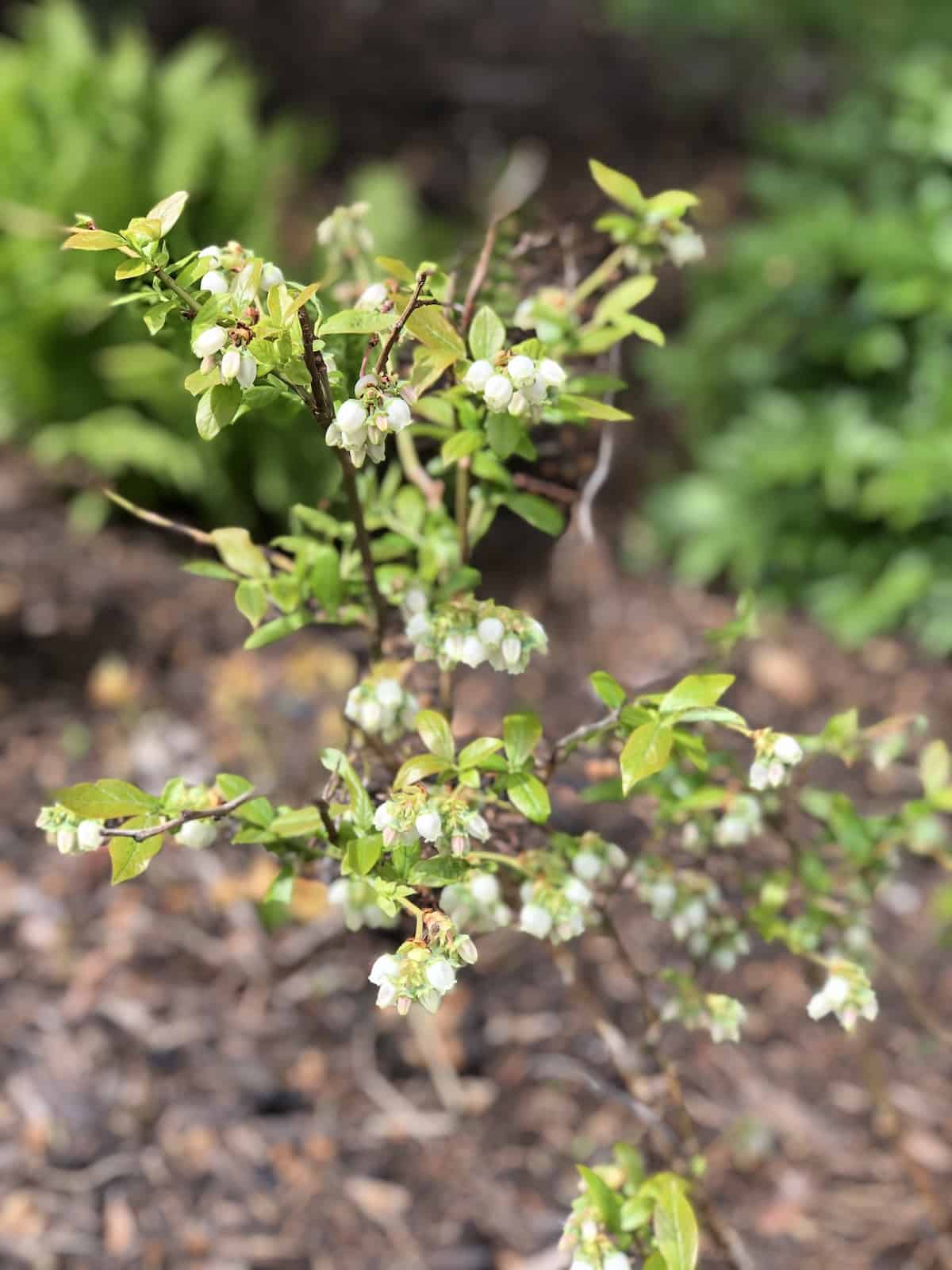 Ferns are another good choice for companion plants for blueberries. They help to keep the soil moist, which is important for blueberries.
Ferns are another good choice for companion plants for blueberries. They help to keep the soil moist, which is important for blueberries. - Clover
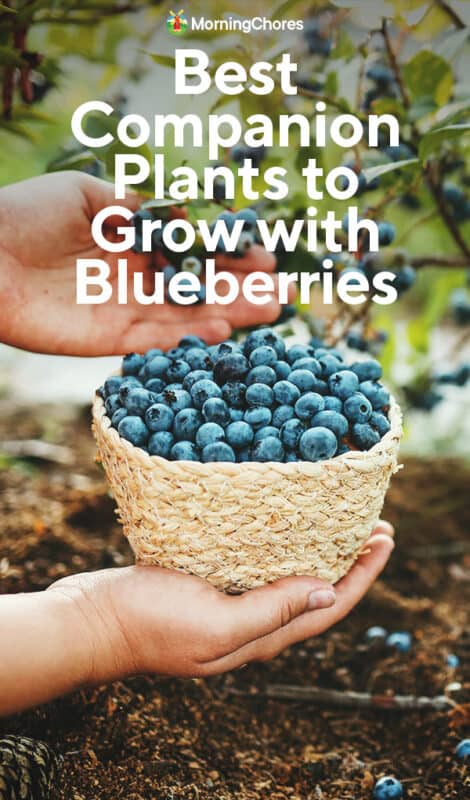 Clover is a nitrogen-fixing plant, which means that it can help to improve the soil quality around blueberries.
Clover is a nitrogen-fixing plant, which means that it can help to improve the soil quality around blueberries. - Dill
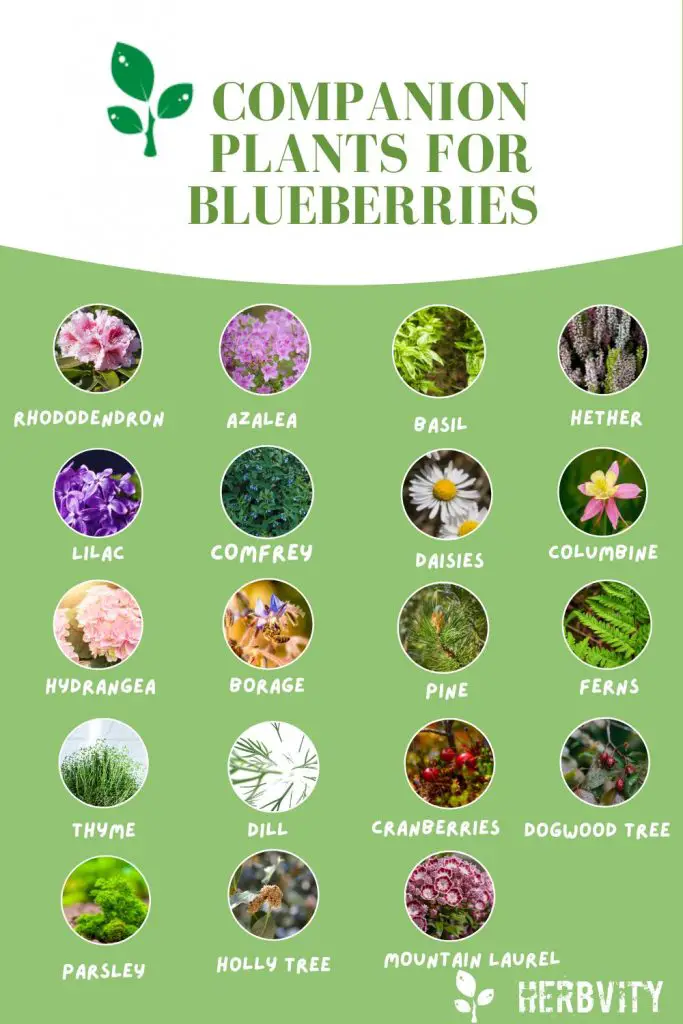 Dill is another nitrogen-fixing plant, and it also helps to repel pests from blueberries.
Dill is another nitrogen-fixing plant, and it also helps to repel pests from blueberries. - Borage
 Borage attracts pollinators, which can help to increase the blueberry yield.
Borage attracts pollinators, which can help to increase the blueberry yield. - Thyme
 Thyme helps to improve the flavor of blueberries.
Thyme helps to improve the flavor of blueberries. - Sage
 Sage helps to repel pests from blueberries.
Sage helps to repel pests from blueberries.
Post a Comment for "The Best Companion Plants For Blueberries"